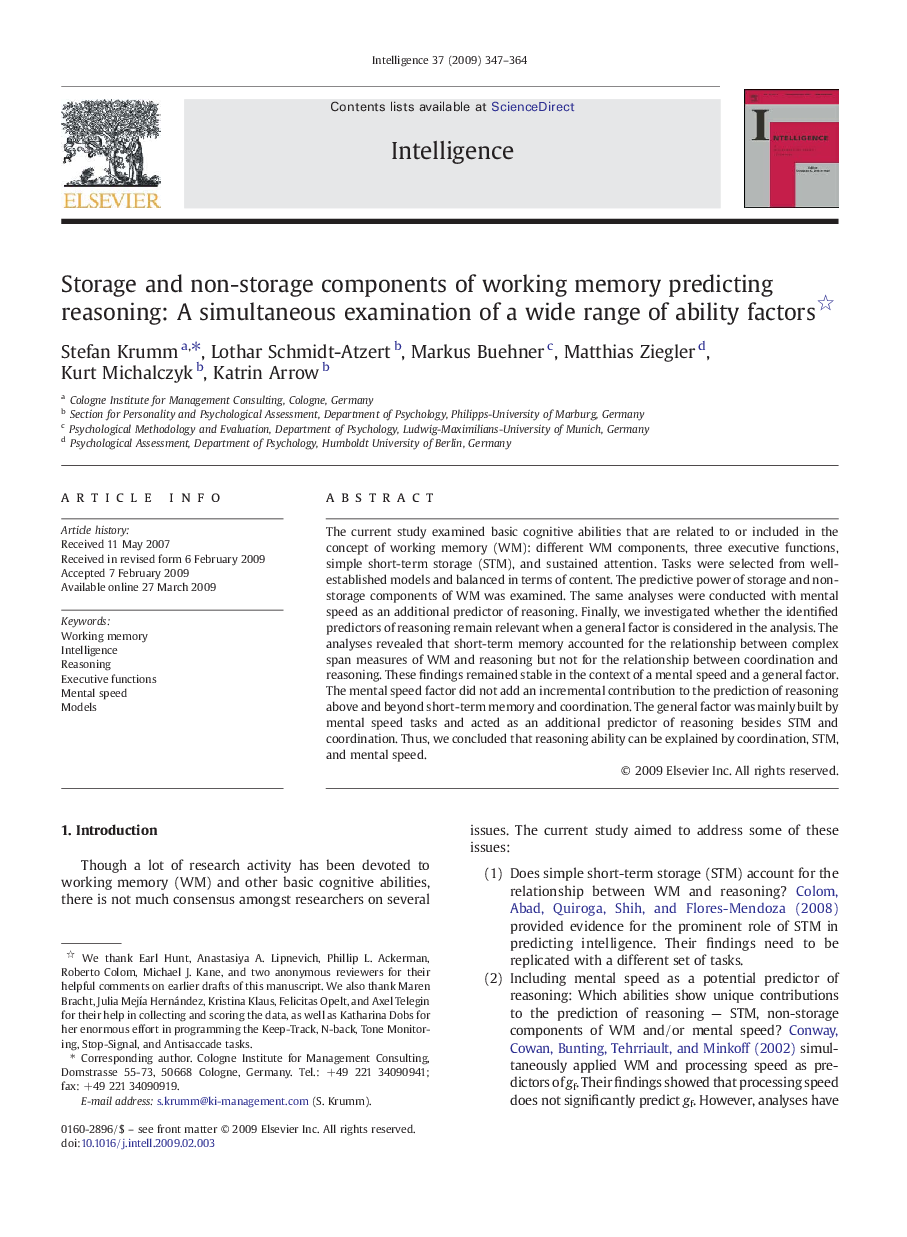| Article ID | Journal | Published Year | Pages | File Type |
|---|---|---|---|---|
| 929189 | Intelligence | 2009 | 18 Pages |
The current study examined basic cognitive abilities that are related to or included in the concept of working memory (WM): different WM components, three executive functions, simple short-term storage (STM), and sustained attention. Tasks were selected from well-established models and balanced in terms of content. The predictive power of storage and non-storage components of WM was examined. The same analyses were conducted with mental speed as an additional predictor of reasoning. Finally, we investigated whether the identified predictors of reasoning remain relevant when a general factor is considered in the analysis. The analyses revealed that short-term memory accounted for the relationship between complex span measures of WM and reasoning but not for the relationship between coordination and reasoning. These findings remained stable in the context of a mental speed and a general factor. The mental speed factor did not add an incremental contribution to the prediction of reasoning above and beyond short-term memory and coordination. The general factor was mainly built by mental speed tasks and acted as an additional predictor of reasoning besides STM and coordination. Thus, we concluded that reasoning ability can be explained by coordination, STM, and mental speed.
